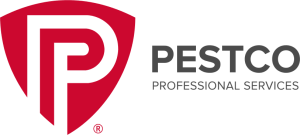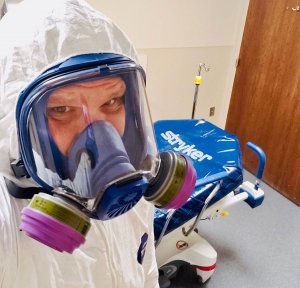What steps can you take as a Pittsburgh business owner to prevent flu in the workplace this season?
Quite simply, they involve:
- Keep surfaces and door handles clean
- Schedule seasonal deep cleanings
- Introduce additional hand sanitizers
- Go hands-free with restroom devices
- Actively provide flu shots for your employees
- Enlist the help of custodial staff
- Schedule cross-contamination surface cleanings
- Don’t hesitate to enlist professional help
Continue reading to learn more about flu season, the loss of business productivity it can cause, how it spreads and detailed descriptions of each step you can take to protect your employees and your business from the common flu, Covid 19 and any variants circulating the Greater Pittsburgh or Western Pennsylvania area!
Some Key Facts About The Flu
Every year from early October into late May, peaking in late January or early February, the flu season brings a new sense of concern to the Pittsburgh and Pennsylvania medical community that must arm itself with sufficient vaccines to service its diverse populations.
This reality become even more clear this year with the spread of the deadly novel Coronavirus, or Covid 19.
While perhaps not as lethal as Covid 19, the CDE estimates that the flu killed approximately 34,200 people from 2018 to 2019.
Additionally, according to the CDC, the Center for Disease Control and Prevention, one out of every five Americans each year will come down with the flu.
There is also the frightening fact that this contagion has become more and more virulent and dangerous with each passing season.
Since 2010, the CDC has noted that more than 100,000 people have been hospitalized in the United States alone for flu-related illnesses.

The Flu And Loss Of Business Productivity
Even though the average person can recover enough to work within a few a week or so, for workers or employees at risk such as the elderly or those with depressed immune systems, the common flu can be life threatening.
Obviously, Covid 19 infections are a different story.
While there may be little if any permanent impact on heath and well-being for most flu sufferers, the CDC states the net effect on the American economy totals an annual loss in productivity totaling US $87 billion!
In addition, one out of every 10 lost workdays can be attributed to the flu, which means that business owners and managers must be proactive in safeguarding their facilities and protecting their employees.
Between 2014 and 2015, which was considered so far to be the worst flu season, 710,000 people were afflicted by flu-related illnesses.
These hospital statistics highlight the importance of proper sanitization in commercial facilities.
This year, the challenge of combating the flu has become even more frightening due to fact that the CDC has declared the current flu vaccine to be less effective than ever.
Personal Hygiene And The Spread of Disease
According to the CDC, the simple act of washing one’s hands can prevent a significant percentage of the spread of illness and disease. During the 19th century, women often died during childbirth of what was then called “child bed fever.”
This happened frequently until one day it all changed when a doctor named Joseph Semmelweis recognized that physicians needed to wash their hands to rid them of lethal bacteria before attempting the delivery of a child.
Further, all surfaces in a dirty, malodorous bathroom are breeding grounds for germs that are so virulent they can still spread disease even after hand washing.
Flushing a toilet provides a veritable banquet for the various organisms that thrive in commercial bathrooms and even grabbing a restroom door handle or touching a paper towel dispenser can spread diseases like Salmonella, E.coli and strains of the flu.
It’s at these points that our professionals, whose mantra is: “We kill the germs that kill your business,” are needed to help stabilize and sanitize commercial restrooms in businesses of all types.
The Spread Of Flu In The Workplace
Pandemic flu is a serious concern for all workers and employers. It costs the United States more than $87 billion each year and is responsible for the loss of almost 17 million workdays each flu season.
According to Business Pulse, an online resource that offers guidance from the CDC about flu season preparation, apart from promoting flu vaccinations among workers, maintaining proper hand and restroom hygiene practices are the best ways to reduce the exposure to the flu virus in the work place.
It is specifically the elimination of germs that prevent the spread of disease.
The flu virus is easily transmitted because it is airborne. The smallest cough or sneeze or even sharing a company phone that someone else has touched can transfer the virus from one person to another.
Washing hands frequently, and/or using hand sanitizers, especially before eating, also helps to prevent its spread. Workers should cover their mouths and noses if the need to cough or sneeze arises.
The CDC advises that any employee who feels sick should stay home; as contagion is at its peak a full day before symptoms show up and up to 7 days after the fever is gone.
In addition to unnecessarily spreading germs, pressuring employees to work despite feeling under the weather can impact company productivity and morale.
Facility managers must have a plan of action to prevent the spread of infection should a flu outbreak occur.
Although no area within a common office should be overlooked, as germs can thrive anywhere, prime targets such as restrooms should receive top priority.
Other Dangerous Bacteria Found In Restrooms
Some studies indicate that only 80 percent of facilities managers are aware that restrooms influence consumer traffic and satisfaction. Worse, research demonstrates the great lack of cleanliness in public bathrooms.
According to a study published in Applied and Environmental Microbiology, scientists have discovered genetic traces of more than 77,000 distinct types of bacteria and viruses lurking in public restrooms.
The numbers are as staggering as they are frightening, and they strongly support the tremendous importance of cleaning and disinfecting work areas.
Added to the problem is the disturbing reality that even after extensive cleaning, studies have proven that treated surfaces don’t remain microbe-free.
According to researchers at San Diego State University, within one hour of cleaning and disinfecting, bathrooms were completely re-contaminated with both microbes and fecal bacteria.
This is why business managers must always keep on top of restroom hygiene.
They should also always be aware of other common bathroom contaminants, which include E.coli, Salmonella and Streptococcus.
E.coli
Escherichia coli (E. coli) are a large and diverse group of bacteria found in the environment, foods, and intestines of both people and animals.
Most strains of E. coli are harmless and they actually aid in keeping our digestive tracts healthy.
However, E.coli causes seventy-five to ninety-five percent of all urinary tract infections, and some types are marked by symptoms such as diarrhea, food poisoning and breathing problems.
This bacterium thrives on bathroom floors, toilet seats, on the soap and the bathroom furnishings, including the doorknob.
This is why it is essential for everyone to wash hands after using the toilet.
Streptococus
Its name derives from the Greek word, meaning easily bent or twisted. An overgrowth of this organism can manifest in sore throats and high temperatures.
If left untreated, it can also cause serious health problems such as rheumatic fever, scarlet fever and kidney disease.
This prolific bacterium thrives in bathrooms, particularly on bars of soap and towels.
It is mostly found on the skin of our hands and the best mode of prevention is to wash hands thoroughly several times during the day and replace soap bars with liquid soap push applicators.
Salmonella
Although salmonella poisoning can arise from undercooked or raw eggs, chicken or pork, it is also known to flourish in a bathroom environment.
These bacteria live in our intestines and are shed through excretion.
Washing hands thoroughly after using the toilet is one effective preventive measure in the spread of the bacteria and its incurring infection (salmonellosis), which is usually marked by severe and dehydrating diarrhea.
Salmonella infection is quite common in countries with poor sanitation. Failure to close the lid of the toilet before flushing also provides a feast for these organisms.
Pro-Active Steps For Cold & Flu Prevention In The Workplace
1) Keep surfaces and door handles clean
This is always good practice in any office at any time. Disinfecting those surfaces that are shared, such as doorknobs, phones and keyboards help to contain the spread of the flu virus. Facility managers should also encourage employees to clean their desks and cubicles during the day.
2) Schedule seasonal deep cleanings
For best results, these should be conducted at the onset of cold and flu season and properly scheduled to reduce interruptions during work hours. Annual deep cleanings with both disinfectant and hand sanitizers increase the effectiveness of flu prevention.
3) Introduce additional hand sanitizers
Introduce additional hand sanitizers and place them strategically in high traffic areas such as restrooms. Install them also near workstations. Building and office entrances, conference rooms, kitchens and copy rooms are also strategic locations for freestanding hand sanitizer dispensers.
4) Go hands-free with restroom devices
This may be a bit costly initially, but in the long run, it will save facility managers money because it will result in more productivity and fewer sick days.
Installing hands-free automatic sinks and toilets, soap and paper towel dispensers, and airflow hand dryers in restrooms removes those touch points that spread the flu virus.
Facility managers should also encourage employees to wash their hands multiple times throughout the workday, both after using the restroom and before and after eating.
5) Actively Provide flu shots to your team
While no one can force anyone to take a vaccination, by offering free flu shots to employees, facility managers are demonstrating that they care about those who work for them.
Vaccination also greatly minimizes the impact of the outbreak of flu in the workplace.
6) Enlist the help of custodial staff
The company custodial team must work in conjunction with employees to keep the flu virus at bay.
They can do their part by ensuring the proper disposal of infected materials, especially in garbage cans or loose tissues lying around restrooms.
As this team works under the jurisdiction of the facility manager, he or she should maintain daily communication with the custodial staff to make sure they are performing maintenance duties on a regular basis.
7) Schedule cross-contamination surface cleanings
Containing and disinfecting areas where a flu outbreak has occurred must be a high priority for business and facility managers.
In the average restroom, this would include everything from doorknobs, faucets, flushers and toilet tissue holders to restroom partitions.
All of these surfaces should be sprayed every day with either a disinfectant or an anti-microbial coating that will remain on surfaces for the entire workday.
If the flu outbreak is really severe, consider going a step further by purchasing a hospital-grade disinfectant to cover all surfaces, which will continue killing bacteria for up to 48 hours after application.
8) Don’t hesitate to enlist professional help
Last but far from least, is hiring a professional contractor to perform specialized services.
While the cost can vary depending on the services and areas in need of cleaning, the peace of mind that comes from knowing you are maintaining proper restroom hygiene is worth the additional expense.
The key to success is knowing who to call, and the answer for businesses throughout Western PA, Pittsburgh, Ohio and West Virginia, is the experts at Pestco.
By employing our Enviro-Master washroom hygiene program, businesses can work to further prevent dangerous germs and bacteria from building up in commercial washrooms, effectively limiting the spread of flue and other viruses that can easily spread in workplace environments.
Pittsburgh’s Enviro-Master And Flu Prevention Program
Pestco Professional Services, headed by well-respected, veteran businessman, Arnold Zlotnik, has been providing excellent and extensive service to business owners throughout Pittsburgh and the Western Pennsylvania area for more than seven decades.

In his own words: “Enviro-Master is a great fit with our existing customer base of pest control and air fresheners. Quality is paramount, and we feel that Enviro-Master brings outstanding products with service innovations and a reputation for excellence that our customers will appreciate. We will now be able to meet a greater range of needs within our customer base, and we can branch out within our community and the tri-state area with a full complement of hygiene disinfecting and sanitizing services.”

Learn how we are joining the fight against Covid!
Listed as one of the Top 50 New Franchises by Entrepreneur Magazine, Enviro Master services the entire DMV area (Washington DC, Maryland and Virginia) and is the expert on commercial restroom sanitation and air care services in the Mid Atlantic region.
Washroom Hygiene, Pest Maintenance And Malodors
Germs, bacteria and virus spread can be significantly reduced with the help of professional sanitization services, but washrooms cleanliness is but one challenge for business owners.
Pests and malodors can have as much of a negative impact on your business as a poorly maintained washroom.
So we created Complete Facility Care, one bundled, all-in-one holistic approach to providing a healthy modern workplace atmosphere.
In addition to cost effective pest management and pest control strategies, this program offers environmental air freshening, air freshening strategies and deep cleaning restroom hygiene services.

Our very own, Nick Vasko, disinfecting a local Pittsburgh hospital.
In Conclusion
Maintaining good restroom hygiene practices is fundamental to the success of any business.
Although it may be too big a job to tackle without professional outside help, that should not stand in the way of smooth company operations and clear thinking business owners and facility managers.
Their job involves doing their homework, and this translates into selecting Pestco and our Complete Facility Care program for help in maintaining the best restroom hygiene maintenance services on the market today.
Our regular applications can insure that your commercial restroom will be free of harmful bacteria leading to less illness and generate more traffic and revenue.
Contact our team today and start fighting against Covid, the flu and other germs and viruses within your business establishment — (412) 252-5200
Remember the mantra: We kill the germs that kill your business.
Photo Credits: Pixabay
 Over 300 Reviews
Over 300 Reviews 